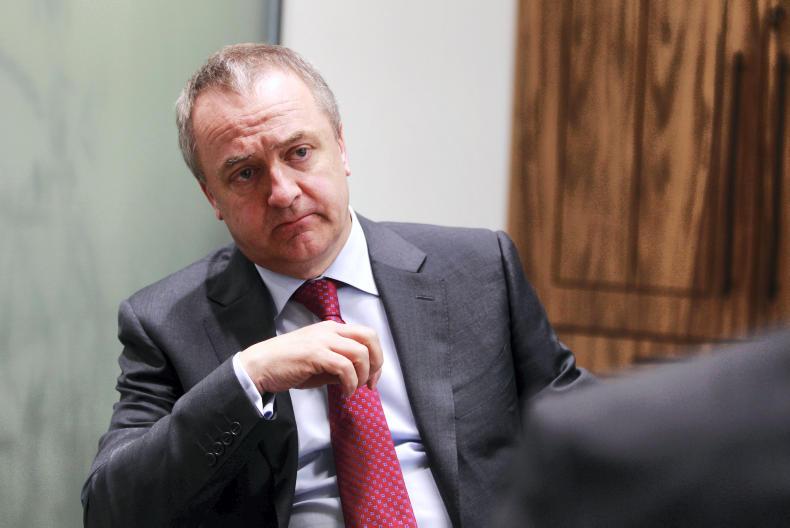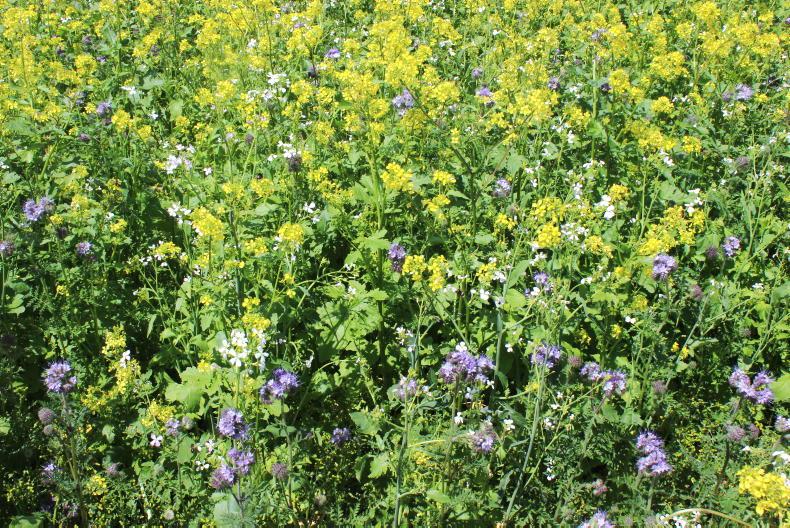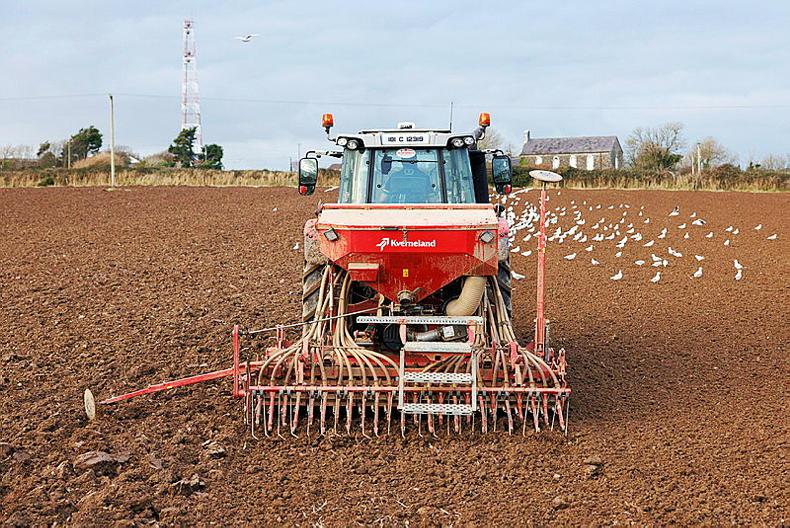A strange dynamic has developed in UK agriculture since the Brexit vote.
While the majority of UK farmers voted to leave the EU, the consensus is that Brexit will result in significant structural changes for UK agriculture, with consolidation at farm level occurring at the expense of smaller-scale, less efficient producers.
Weakness in Sterling
However, the weakness in sterling over the last 12 months has resulted in much stronger farmgate grain prices in 2017 for UK growers compared with previous years, which means less efficient farmers have actually benefitted from the vote for Brexit so far.
But for Origin Enterprises chief executive Tom O’Mahony, the longer-term consequences for UK cereal growers from Brexit will mean significant change.
“Business models in UK farming are going to change,” said O’Mahony, who was speaking to the Irish Farmers Journal on Wednesday morning after Origin reported a 12% increase in underlying operating profits to €70m for its 2017 financial year.
Revenues for the year increased slightly (+0.5%) to €1.53bn.
“Agricultural production in the UK will become more concentrated into larger holdings following Brexit. There will be a move towards greater competitiveness and this will likely accelerate structural change at farm level,” he said.
Seen this change before
However, O’Mahony said that UK farming has seen this sort of change before when the outbreak of foot-and-mouth disease in 2001 saw many livestock farmers exit the sector altogether.
But for this season’s harvest, O’Mahony said the mood among UK tillage farmers is one of optimism with prices much improved on previous years.
“The underlying output price of grain is weak right now but UK cereal growers are making very good returns from the structural weakness in sterling.
‘‘I would say that cereal farmers are optimistic but they are preparing themselves for the changes that will come after Brexit,” he added.
The weak sterling has certainly helped Origin’s underlying business in the UK over the last 12 months, with grain prices and EU direct payments to UK farmers all increasing this year. This boost in income for UK farmers has driven a 5% increase in volume growth for Origin’s agronomy services and input sales.
Profits increase
Underlying operating profits in Origin’s UK and Ireland business increased by 12% this year to €53.4m, as the increased on-farm activity helped to widen profit margins to 5.6%.
Origin’s UK and Ireland division, which had sales of €955m last year, remains the backbone of the company accounting for more than three-quarters of profits.
Continental Europe
For Origin’s European business, which includes operations in Poland, Romania and Ukraine, the 2017 financial year was also one of growth with currency playing an important role again.
The division recorded a 24% increase in sales to €397m, while underlying operating profits increased 10% to more than €16m. In Ukraine, in particular, cereal farmers are enjoying strong prices thanks to the weakness in the domestic currency.
O’Mahony said the political situation in Ukraine has stabilised but the group remains mindful of how it deploys capital in the country. Producing 50m to 60m tonnes of grain at present, O’Mahony says the country has the potential to reach 100m tonnes in production.
In Poland, Origin said a €6m investment at its seed processing facility in the northwest of the country would be operational in early 2018. O’Mahony said the investment is an expansion of an existing facility the group acquired after its buyout of Masstock in 2008.
He added that certified seed usage in Poland is currently low at 20% but is growing thanks to EU incentives.
While a market leader in these three countries, O’Mahony said Origin only has a market share of about 10% in each market as the input and agronomy sectors are highly fragmented.
As such, O’Mahony sees potential in expanding the group’s branded presence in eastern Europe, which is why the group has focused its acquisition spend in recent years in Poland, Romania and Ukraine.
With net debts of just €31.5m, Origin is very lowly geared with a debt to earnings (EBITDA) ratio of just 0.49 times. O’Mahony said this leaves “significant headroom” within the balance sheet for future spend on acquisitions should an opportunity present itself.
When asked for his view on the recent noises emanating from Brussels regarding the licensing of glyphosate, O’Mahony said he believes practical sense will win through.
“The glyphosate debate is about production and the capacity of farmers to produce.
‘‘I think practical sense will prevail here and the practicalities of reality will win through,” O’Mahony added.
For UK farmers, O’Mahony said he didn’t expect “wholesale regulatory changes” once the UK exits Europe but described the longer term regulatory environment as difficult to predict.
Wicklow site acquisition part of wider Irish expansion plan – Zoetis
Kerry Group’s Listowel plant shuts for 24 hours over pay dispute










SHARING OPTIONS